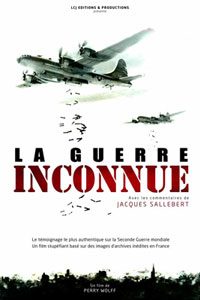
Perry Wolff and Charles Collingwood discuss Berlin: Act of War in 1961.
A few weeks later the Cold War intervened. Germany was divided between east and west. Berlin had been split into an Allied command
and a Soviet zone, and the Germans of the east were flocking the west by the thousands. Berlin itself was isolated, cut off from American ground and rail supplies, except by one road in a narrow corridor.
A subject I suggested “Berlin: Act of War?” was immediately approved. I rounded up a small team, found Charles Collingwood as a correspondent and flew into Templehof, the Berlin Airport. Dick Sedia, the crew chief, rented a German video bus. It was driven from Darmstadt, the last town in the American zone, to the Brandenburg Gate, a dividing monument between east and west. Our equipment was in sight of Soviet tanks on their side of the Gate. Their vehicles were unbuttoned, hatches open to daylight, guns covered with tarpaulins.
We spent a day watching the East Germans stream to West Berlin. The border was open, and almost the whole professional class of the east was trying to escape. The footage was excellent as were the interviews.
We had checked into the Hotel Kempinski. On the second evening Charles, who liked nightlife, took me to a recommended café. He saw an unescorted girl leaving and apologized.
“According to Naval Regulations I am about to undertake the most unprofitable of fleet maneuvers,” he said. “I am going to make a stern chase.”
He followed the girl and I went to sleep. About two in the morning, Dick Sedia phoned me. “Get dressed, Perry. We may get blown up!”
Just a few yards ahead of our remote unit, the Russians were building some sort of wall near the Brandenburg Gate. The open border was being closed. Dick and I set up the cameras and lights and recorded the scene. The German owner of the remote bus was worried that the tanks would fire on his equipment. The Soviet armored vehicles had closed their turrets. The covers were off their weapons and their guns were slowly traversing the plaza in front of the gate. When Charles finally arrived, he did an improvised on-camera speech and we left the site as quickly as possible.
My first idea was to take the bus to the airport and ship the tapes on the first plane out, but Templehof was closed. We started down the protected corridor, the one road available to the Allies from Berlin to Darmstadt. A few miles out of town two East German cars overtook us, blocked the van and came out of their armored car carrying weapons. They spoke no English, but they made it clear they intended to search the bus.
“Verboten,” I said.
“Nichts verboten,” I think they said. They wanted all pictures, everything we had taped. Their side arms were in plain sight. There was no use arguing.
A flashback to the war was brought on by the color and cut of their uniforms. I had spoken to myself about giving a moral pass to any German under the age of thirty; the young ones could not have had anything to do with the Nazi regime. In the dark of me was the reflex of the concentration camp, Ahlem Hanover. In time, hate recedes to distaste.
The two-inch tapes were on the playbacks. I told Dick to give them the pictures; the recorded refugees, the closed subway station filled with faces filled with panic. The police demanded to see the first pictures to verify the images were truly there. They took two heavy reels, and let us go.
“They didn’t know where to look”, said Dick. “While Collingwood was chasing dames and you were sleeping, I saved your ass by dubbing a backup transfer, and hiding the originals. Here’s your story.”
I owed him. As payback I took him on later trips to Italy and Jordan.
Image
Perry Wolff and Charles Collingwood: Torrance Press, August 13, 1961




 ect helped finance two feature-length documentaries made from Airpower: La Guerre Inconnue (the Unknown War), and Kamikaze. I bought the footage from CBS and cleared the rights. To distribute in France I needed a co-producer who recommended technical facilities and personnel.
ect helped finance two feature-length documentaries made from Airpower: La Guerre Inconnue (the Unknown War), and Kamikaze. I bought the footage from CBS and cleared the rights. To distribute in France I needed a co-producer who recommended technical facilities and personnel. We were in Paris at the time Liz Taylor and Richard Burton were living in sin in Rome and filming Cleopatra. The scandal was worth millions in box office revenue to Spyros Skouras, the head of Twentieth Century Fox.
We were in Paris at the time Liz Taylor and Richard Burton were living in sin in Rome and filming Cleopatra. The scandal was worth millions in box office revenue to Spyros Skouras, the head of Twentieth Century Fox.